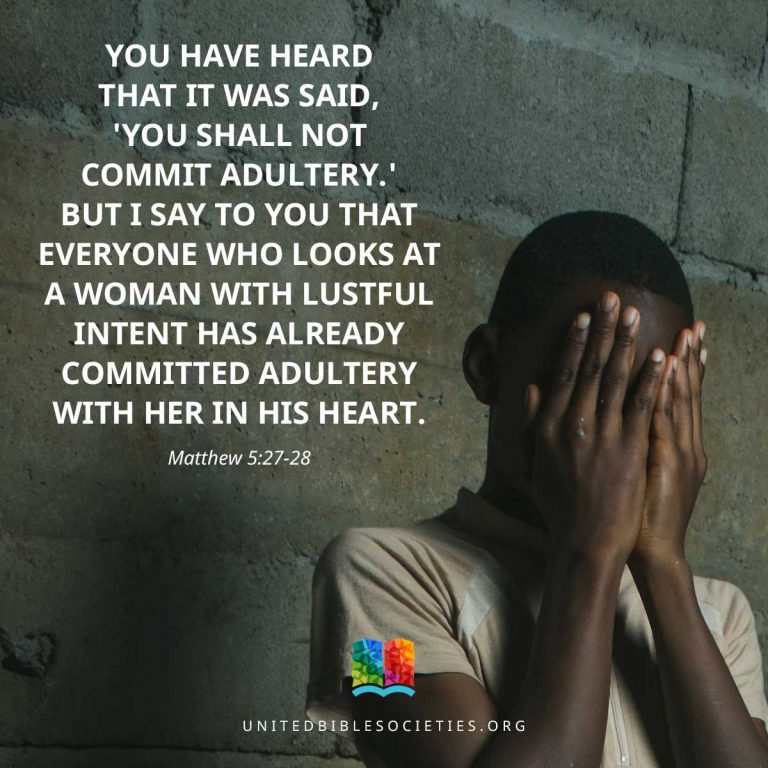The Wise Men
1 When Jesus was born in the village of Bethlehem in Judea, Herod was king. During this time some wise men from the east came to Jerusalem 2 and said, “Where is the child born to be king of the Jews? We saw his star in the east and have come to worship him.”
3 When King Herod heard about this, he was worried, and so was everyone else in Jerusalem. 4 Herod brought together the chief priests and the teachers of the Law of Moses and asked them, “Where will the Messiah be born?”
5 They told him, “He will be born in Bethlehem, just as the prophet wrote,
6 ‘Bethlehem in the land
of Judea,
you are very important
among the towns of Judea.
From your town
will come a leader,
who will be like a shepherd
for my people Israel.’ ”
7 Herod secretly called in the wise men and asked them when they had first seen the star. 8 He told them, “Go to Bethlehem and search carefully for the child. As soon as you find him, let me know. I also want to go and worship him.”
9 The wise men listened to what the king said and then left. And the star they had seen in the east went on ahead of them until it stopped over the place where the child was. 10 They were thrilled and excited to see the star.
11 When the men went into the house and saw the child with Mary, his mother, they knelt down and worshiped him. They took out their gifts of gold, frankincense, and myrrh and gave them to him. 12 Later they were warned in a dream not to return to Herod, and they went back home by another road.
The Escape to Egypt
13 After the wise men had gone, an angel from the Lord appeared to Joseph in a dream and said, “Get up! Hurry and take the child and his mother to Egypt! Stay there until I tell you to return, because Herod is looking for the child and wants to kill him.”
14 That night, Joseph got up and took his wife and the child to Egypt, 15 where they stayed until Herod died. So the Lord's promise came true, just as the prophet had said, “I called my son out of Egypt.”
The Killing of the Children
16 When Herod found out that the wise men from the east had tricked him, he was very angry. He gave orders for his men to kill all the boys who lived in or near Bethlehem and were two years old and younger. This was based on what he had learned from the wise men.
17 So the Lord's promise came true, just as the prophet Jeremiah had said,
18 “In Ramah a voice was heard
crying and weeping loudly.
Rachel was mourning
for her children,
and she refused
to be comforted,
because they were dead.”
The Return from Egypt
19 After King Herod died, an angel from the Lord appeared in a dream to Joseph while he was still in Egypt. 20 The angel said, “Get up and take the child and his mother back to Israel. The people who wanted to kill him are now dead.”
21 Joseph got up and left with them for Israel. 22 But when he heard that Herod's son Archelaus was now ruler of Judea, he was afraid to go there. Then in a dream he was told to go to Galilee, 23 and they went to live there in the town of Nazareth. So the Lord's promise came true, just as the prophet had said, “He will be called a Nazarene.”
Ŋen ŋəled̶a ildi lələŋeṯo ŋen nəsi leṯo Yesu nano ŋen gələŋənu
1 Ndə Yesu gələŋeinu alo yi-Beṯlam alo Yuḏiya, iliga Iruḏus gəɽo eləŋ. Led̶a ildi lələŋeṯo ŋen nəsi lalo yenəŋ nwaldaŋ kaiñ Ndelia leṯo alo yi-Ursalim, ldaṯa, 2 “Gënəŋu gwëtu ŋga igi gələŋənu gəɽo Eləŋ g-Alyawuḏ? Ŋen ŋanṯa ñagaseicu d̶opa d̶əlëɽəŋu d̶ətwod̶o Ndelia na ñageṯo ṯa ñamukwud̶əñiṯialo.” 3 Ndə eləŋ Iruḏus gəno ŋen iŋi, nəŋgərd̶e kaiñ, na led̶a pred̶ lalo yi-Ursalim com. 4 Orn gënəŋu nəŋundəd̶aici nələŋ ldəɽo pred̶ nəkana, na led̶a ildi ləbërrəŋaid̶ia ŋen ŋ-Alganun l-Israyil nəŋəleɽəd̶e ṯa, “Almasiya gid̶i aŋələŋeini ŋga?” 5 Lënəŋulu ldəmeiṯi ṯa, “Irnuŋ gəbërnia Beṯlam alo Yuḏiya, ŋen ŋanṯa ŋen ŋawërd̶ənu nabiya,
6 ‘Aganəŋa ya Beṯlam alo yi-Yaud̶a agero agəta agəməñaṯo irnuŋ pred̶ galo gə-Yaud̶a kwai kwai.
Ŋen ŋanṯa Eləŋ gid̶i aŋətwod̶e eŋa igi gid̶i aŋərəmoṯe led̶a əllëɽəñi l-Israyil’.”
7 Orn Iruḏus nəŋundəd̶i led̶a lələŋeṯo ŋen nəsi ŋoɽoma ildi leṯo nwaldaŋ nəŋəleɽəd̶e ṯa aŋələŋeṯe liga d̶urri ildi d̶opa d̶ətwod̶au. 8 Nṯia gënəŋu nəŋələd̶waṯe alo yi-Beṯlam, nəŋəleiṯi ṯa, “Mbər ñekeɽəd̶e ŋen d̶urri ŋəŋere, na ndə ñagəfid̶u, elar ñaiñəlwaɽəṯi ṯa, igënəñi yela yud̶əñiṯialo com.” 9 Ndə led̶a lələŋeṯo ŋen nəsi ləno ŋen ŋeləŋ ldətwod̶e ldabəla na d̶opa id̶i ləseicu ŋen d̶ətwod̶o Ndelia nḏəlafəṯi nëiñua nḏəd̶uri eɽa ed̶əpe igi ŋere ŋəfau. 10 Ndə ləseicu d̶opa ldəŋəreṯe nano d̶əŋəra nano d̶oɽra kaiñ. 11 Orn ldënṯi egeɽa, ldəseici ŋere iŋi ləfo ləŋgenga gəbërnia Mariam, na lënəŋulu ldukwud̶əñiṯialo. Ldəgagid̶i sanḏug esen ldəmanaice aḏaəb, na ŋela ŋəmwad̶a gaiñəla kaiñ ŋəbërnia luban, na waŋge gəbërnia murra (laŋge ildi lwaiña iliano kaiñ). 12 Orn led̶a ildi lələŋeṯo ŋen nəsi ld̶əlwaɽənṯi iŋurid̶ ṯa alerṯe loɽəbaṯa Iruḏus nano, nṯia ldətwod̶e ldəməñe ed̶ad̶ d̶ərto, ldoɽəbaṯe irnuŋ egen.
Ŋen ŋəd̶obəd̶aṯa alo yi-Masr
13 Ndə led̶a ildi lələŋeṯo ŋen nəsi ləbəɽo, malaiyəka d̶-Eləŋ Rəmwa nḏeṯa Yusif nano iŋurid̶ nḏəmeiṯi ṯa, “Twod̶o, ŋame ŋere na ləŋgen, ñaɽe taltal alo yi-Masr, ñaɽaŋad̶aṯe tu ṯia oro igid̶i indəlwaɽəṯi, ŋen ŋanṯa Iruḏus gid̶i aŋəpwaiñe ŋere ṯa aŋəɽiñe.” 14 Yusif nəŋətwod̶e uləŋgi nəŋəme ŋere na ləŋgen, ldabəṯa alo yi-Masr, 15 na lënəŋulu ldəɽaŋe tu pərr na Iruḏus nəŋaiye. Ŋen iŋi ŋaɽo ṯia, ṯa ŋen Eləŋ Rəmwa rəlwaɽo nabiya aŋəɽiñəd̶eini ndə raṯa, “Igundəd̶u Id̶ia gəlëɽəñi alo yi-Masr.”
Ŋen Iruḏus gəɽiño ñere ñalo yi-Beṯlam
16 Ndə Iruḏus gəseicu ṯa led̶a ildi leṯo nwaldaŋ lid̶əma ŋad̶əna nəŋəciṯano kaiñ, nəŋəd̶waṯe askari ywaiña neɽiñe ñere pred̶ ñərrwa alo yi-Beṯlam, na alo yi-Beṯlam ṯwaiñ iñi ñerṯo nṯəlia nəɽijan, na ñərra ñəmulu ñəberṯia nṯəlia nəɽijan, ŋen ŋarno liga ildi gënəŋu gërrəŋeinu ŋen ŋənələŋ. 17 Nṯia ŋen ŋəɽiñəd̶einu iŋi anabi Irəmiya gəlwaɽo ndə gaṯa,
18 “Olia ganənu alo ye-Rama, gəd̶ara na gəd̶wana kaiñ.
Rayil gabara ŋen ŋanṯa ñere ñəlëɽəŋu, nəŋəned̶e gəbəɽiniano ŋen ŋanṯa ñere ñero d̶əge.”
Ŋen ŋəd̶oɽəbəd̶ia alo yi-Masr
19 Ndə Iruḏus gaiyo d̶əge, malaiyəka d̶-Eləŋ Rəmwa nḏeṯa Yusif nano iŋurid̶ alo yi-Masr, 20 nḏəmeiṯi ṯa, “Twod̶o, ŋame ŋere na ləŋgen, ñoɽəbaṯe alo y-Israyil, ŋen ŋanṯa led̶a laiyo ildi lwonaṯa ləɽiña ŋere.” 21 Orn gënəŋu nəŋətwod̶e, nəŋəme ŋere na ləŋgen, ldoɽəbaṯe alo y-Israyil. 22 Orn ndə Yusif gəno ṯa Arkilawus garraṯo eŋələŋ ŋeṯen Iruḏus nəŋəɽeṯe eləŋ galo Yuḏiya, nəŋəd̶əñiṯalo ṯa goɽəbaṯa alo yakəl nəgabəṯa alo yi-Jalil ndə gërrəŋeinu ŋen ṯia iŋurid̶. 23 Gënəŋu gabəɽo nəŋəfeṯe alo yenəŋ ibërnia Nasəraṯ, ṯa ŋen aŋəɽiñad̶eini iŋi anəbiya yelwaɽo ṯa, “Gënəŋu gid̶i aŋënəjəni Nasəriya.”


